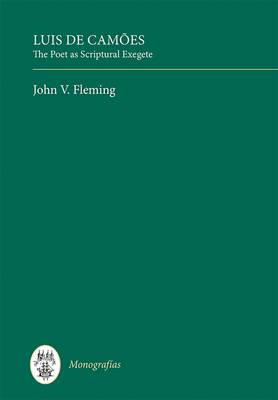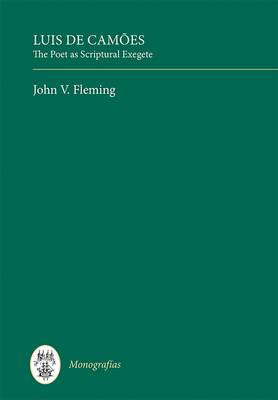
Bedankt voor het vertrouwen het afgelopen jaar! Om jou te bedanken bieden we GRATIS verzending aan op alles gedurende de hele maand januari.
- Afhalen na 1 uur in een winkel met voorraad
- Gratis thuislevering in België
- Ruim aanbod met 7 miljoen producten
Bedankt voor het vertrouwen het afgelopen jaar! Om jou te bedanken bieden we GRATIS verzending aan op alles gedurende de hele maand januari.
- Afhalen na 1 uur in een winkel met voorraad
- Gratis thuislevering in België
- Ruim aanbod met 7 miljoen producten
Zoeken
Omschrijving
Fleming masterfully demonstrates Camões's debt to, and participation in, the long and continuing traditions of "spiritual" or allegorical scriptural exegesis in the European Middle Ages and Renaissance. Second in its fame only to the Lusiads within Camões's large body of poetry, "Sôbolos rios" ("Babylon and Zion") in redondilhas is a philosophically ambitious masterwork of Christian humanism that draws from the psalm Super flumina Babylonis both a general theory of poetry and an intensely focused meditation upon the shape of an individual poet's career. Bringing to bear upon the poem the several learned traditions the poet demands, Fleming's study relates the poem to the traditions of allegorical scriptural exegesis characteristic of the Middle Ages and Renaissance. Specific subjects include the centrality of the psalms and the image of David to European poets, therelation of pagan myth to biblical truth, the complexity and purposefulness of Camoes's intertextual strategies, the underappreciated influence on Camões of Juan Boscán, the exegetical control of the poem's elaborate numerological schemes, and the concept of palinode as literary genre and personal moral statement. John V. Fleming is the Louis W. Fairchild Professor of English and Professor of Comparative Literature emeritus at Princeton University.
Specificaties
Betrokkenen
- Auteur(s):
- Uitgeverij:
Inhoud
- Aantal bladzijden:
- 231
- Taal:
- Engels
- Reeks:
- Reeksnummer:
- nr. 367
Eigenschappen
- Productcode (EAN):
- 9781855663145
- Verschijningsdatum:
- 16/06/2017
- Uitvoering:
- Hardcover
- Formaat:
- Genaaid
- Afmetingen:
- 156 mm x 234 mm
- Gewicht:
- 503 g

Alleen bij Standaard Boekhandel
+ 354 punten op je klantenkaart van Standaard Boekhandel
Beoordelingen
We publiceren alleen reviews die voldoen aan de voorwaarden voor reviews. Bekijk onze voorwaarden voor reviews.












